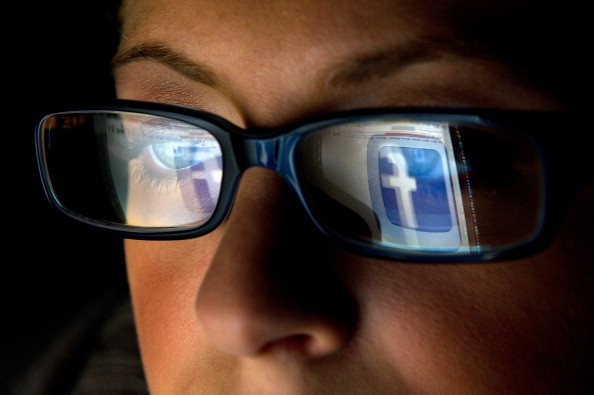Now you can track your friends' sleep patterns using Facebook

We all know that nothing is truly private on social media. Whether we are browsing on our desktop, tapping through our iPad or scrolling through our smartphone while out on the town, online tracking and targeted ad campaigns used to "enhance" the user experience by keeping track of our daily lives have scored pretty high on the creep-o-meter.
Now, a Danish developer has created a way to track your Facebook friends' sleeping patterns based on time stamps that Facebook stores on users of its site and messenger app.
Coding a simple program that gathers digital IDs and their "last active" receipts, Søren Louv-Jansen's program can create a creepily accurate profile of friend's sleeping habits. He also published the source code on GitHub – a popular code-sharing and management service for developers – and explains how it works on Medium.
With a Facebook friend's location and "last active" stamp readily available, Louv-Jansen's program checks Facebook every 10 minutes to get a picture of who is and isn't online on the social network. The data collected can then be mapped and analysed to create a profile of one's sleep patterns.
"Many people visit Facebook as the first thing in the morning and the last thing before going to bed," Louv-Jansen wrote on Medium. "It is therefore possible to get a good impression of their sleeping habits (or lack thereof)."
Although the program works best for frequent users, he told The Washington Post, the tool worked "extremely well" on about 30% of his friends, and "somewhat effectively" on the remaining 70%.
"Everybody I've shown this to have been equally fascinated and outraged by the accuracy with which it predicts their sleep habits," he wrote. "In this digital world we leave footprints where we go, and when we do it, without even thinking about it. Facebook might block this little "hack", so your friends no longer can track you, but Facebook will always be able to do their own data analysis, which is undoubtedly way better than what I've come up with. They are likely using this data for profiling, and creating more user-specific ads."
Having worked on the project for five to six months before launching it in December, Louv-Jansen told The Post that he received a notice from Facebook in February saying the use of his program violated the social network's terms of service. Although the Dane has stopped using the program himself, he has refused to remove the code source from GitHub.
"My point was not to spy on my friends," Soren Louv-Jansen said. "I want people to be aware that they're leaving some digital footsteps everywhere they go."
In a statement to ABC News, Facebook said "our terms prohibit collecting people's content or information or otherwise accessing Messenger using automated means without our prior permission.
"This integration violates those terms – as the developer alluded to in his post – and we've reached out to the developer to ask him to take it down. Messenger cares deeply about protecting people's privacy," the statement continued. "That's why only people you're Facebook friends with, have added as a Messenger contact or who you've messaged before can see when you were last active."
Coincidently, this isn't the first time a developer has used a Facebook hack to track Facebook friends' activity.
Inspired by the magical location-tracking map in JK Rowling's Harry Potter, a Harvard student developer created a Google Chrome extension called Marauder's Map that could track his Facebook friends' locations in 2015. Facebook revoked his summer internship with the social network three days after Marauder's Map was launched because he violated the Facebook user agreement.
"I decided to write this extension because we are constantly being told how we are losing privacy with the increasing digitisation of our lives," Khanna wrote in his own post. "However, the consequences never seem tangible... With this code you can see for yourself the potentially invasive usage of the information you share, and decide for yourself if this is something you should worry about."
© Copyright IBTimes 2025. All rights reserved.





















